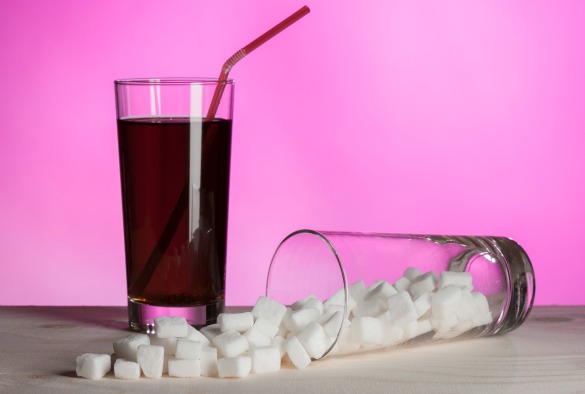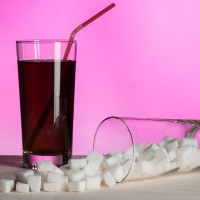
Professor Simon Capewell is Vice-President for policy for the UK Faculty of Public Health and a professor of clinical epidemiology at the University. Professor Capewell is also a trustee for the UK Health Forum for Heart of Mersey and a founder member of Action on Sugar.
Recently Professor Capewell and his colleague Dr Emma Boyland were invited along with other health experts from Public Health England to present evidence and discuss recommendations to improve children’s health to the Health Select Committee:
“As part of JanUary I am taking this opportunity to highlight one of the main causes of childhood obesity and what you can do to avoid it.
Evidence shows that one of the main causes for increasing obesity rates is excessive consumption of sugar, due in particular, to the high sugar content of most fizzy drinks, juice drinks and junk foods. According to Public Health England children are, on average, consuming three times more sugar than they should be.
Public awareness
Worryingly, UK and global populations are consuming increasing amounts of sugary drinks and junk foods (high in salt, sugar and saturated fats). However, there is raised public awareness, and parents in particular want something to be done to curb the alarming rise in childhood obesity.
It’s a myth that most fruit juices are healthy. In fact, it’s fair to say they have no redeeming qualities, as you’re just extracting the water and sugar from the fruit and not utilising the healthy fibre.
Sugars content in fruit juice, juice drinks and smoothies marketed to children in the UK is high. Over a quarter of products surveyed contained the same amount or more of sugars than a 200ml glass of cola: five teaspoons of sugar.
Always dilute fruit juice
Here are my tips for avoiding or at least lessening the adverse effects these drinks can have:
· It sounds obvious but, if you can, avoid fruit and fizzy drinks altogether and drink water
· If you don’t want to avoid fruit juice always opt for the unsweetened type though only drink them during meal times
· If you prefer fizzy drinks, try diluting fruit juice with sparkling water.
· Always dilute fruit juice with water
· Drink no more than 150ml of unsweetened fruit juice a day
Find more ways of cutting out sugar from your diet by visiting the following NHS webpage here.
To help parents identify how much sugar is in foods and drinks Public Health England recently launched their Sugar Smart App that enables people to see how much sugar is in an item by scanning its barcode.”
